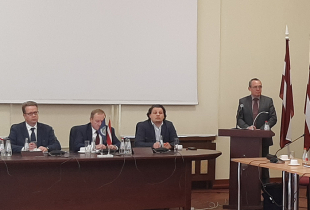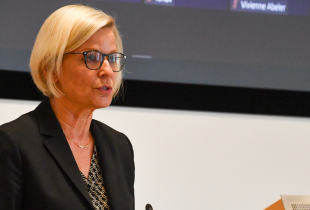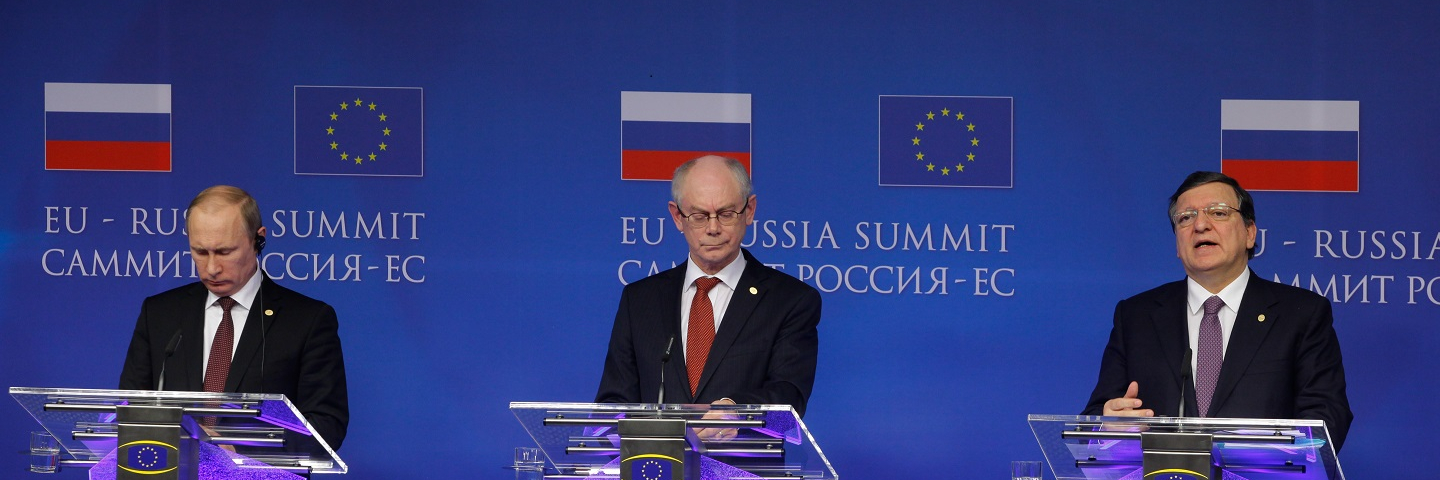
Living in Different Worlds: The European Union and Russian Political War
Executive Summary
- Russia is waging a political war campaign of active measures intended to divide, distract, and dismay European states.
- The institutions of the European Union (EU) have made very patchy and often reluctant responses to this campaign, in part as a result of a lack of consensus among member states.
- A primary issue, though, is the dramatically different strategic cultures and operational codes of the EU and Russia.
Introduction
The EU faces a campaign of Russian active measures—covert political subversion—that has been called “hybrid warfare” but is probably best understood as opportunistic political warfare.1 The aim is to divide, distract, and dismay the Europeans such that they cannot or will not resist Moscow’s wider political agenda. Against this campaign, in the words of an admittedly Euroskeptic British security official, “the EU is nowhere, simply nowhere.”2
EU Policy
In March 2019, the European Parliament formally voted on a resolution that “Russia can no longer be considered a strategic partner.”3 This was actually a nonbinding political resolution, however, and it is still unclear what is behind the EU’s Russia policy. To a considerable extent, its policy has become hijacked by the (admittedly important) question of the Ukrainian conflict. Since 2016, EU member states have formally been committed to five guiding principles for common policy toward Russia:
- Insisting on full implementation of the Minsk Agreements on Ukraine.
- Pursuing closer relations with other former Soviet states.
- Strengthening European resilience to Russian threats, such as energy security and disinformation.
- Selective engagement with Russia on specific issues of common interest.
- Providing more support for Russian civil society.4
However, three years on, the limitations of such an approach are increasingly clear. The Minsk process was stillborn. Closer relations in Central Asia and the Eastern neighborhood, apart from being arguably one reason why Moscow took such a hard line on Ukraine, have largely been hostage to Russian (and Chinese) policy. Common interests have their distinct limits, as has been visible in Syria, and European support for Russian civil society is regarded by Moscow as attempted subversion (not entirely without reason).
A particular problem with formulating EU-wide responses to Russian political war is the disconnect between a breadth of opinion among member states and a culture of (and often institutional requirement for) consensus or unanimity. Discussions tend to focus on broad themes and fashionable buzzwords, from “conditional engagement” to “rebalancing,” all seeking to plot some kind of compromise between hawks who see Moscow as a serious, even existential, threat and those who advocate for constructive negotiation and express a degree of cautious sympathy for the Russian position.5 The result is, by definition, likely to be a lowest common denominator policy menu: heavy on platitude, light on detail, and satisfying to no one.
As a senior member state diplomat told the European Council on Foreign Relations’ Gustav Gressel, there are “good action plans, task forces, conceptual work. But the EU’s soon-to-be-former chief diplomat Federica Mogherini does not want to touch the subject. And there is little sense of coordinated and strategic work on the matter. And many think [it is] just another irritant on the agenda of EU-Russia relations.”6 Although there had been talk that the 2016 Global Strategy for the European Union's Foreign and Security Policy would formally call Russia a “strategic challenge,” instead it simply said that “managing the relationship with Russia represents a key strategic challenge.”7
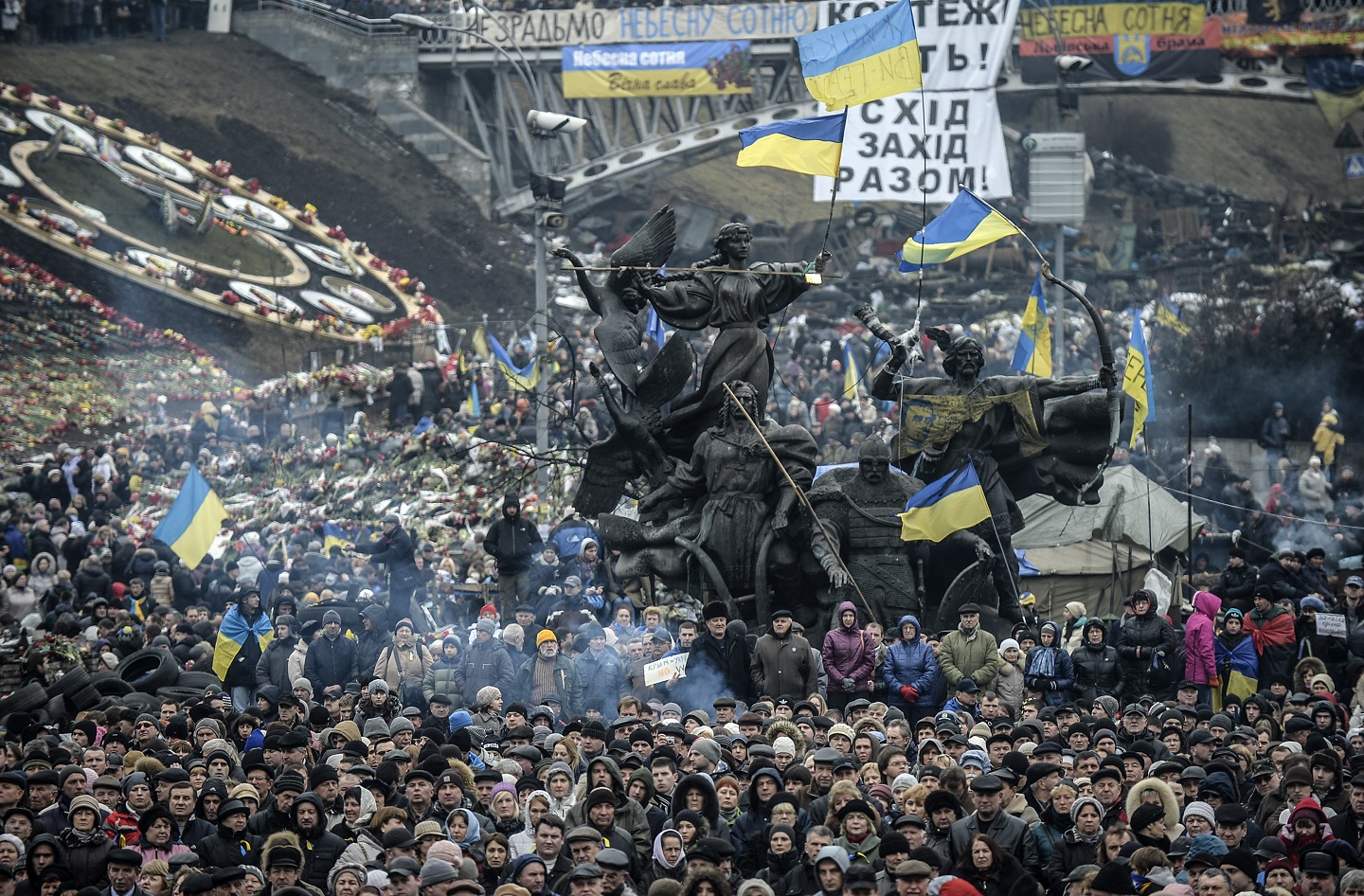
Successes
The implementation of the sanctions—and, given their need for regular renewal, their maintenance—represents perhaps the most striking success story of the EU’s efforts to contain and deter Russian adventurism.8 However, it is worth noting that these efforts have largely been driven by overt aggression, in Crimea and the Donbas, rather than covert subversion. Disinformation campaigns, political interference, and similar active measures have been condemned but not punished in any meaningful way. The wave of expulsions that followed the attempted assassination of Sergei Skripal in the United Kingdom (UK), although involving many (not all9) member states, was more the result of bilateral and multilateral state diplomacy than of EU action. Although the European Council called the assassination attempt a “reckless and illegal act” and expressed its “unqualified solidarity with the UK,” its concrete actions were essentially confined to recalling the head of the EU delegation for consultations.10
As befits a governance-oriented organization, the EU has shown progress in addressing the issue of resilience, although one can question how much this progress is a result of some countries considering themselves at threat and taking appropriate countermeasures, rather than any reflection of leadership at the European Commission or European Parliament level. As one disgruntled Baltic defense official put it, “Brussels loves taking credit for our own hard work.”11
The other flagship of the EU’s response to Russia has been the much-touted East StratCom Task Force, established within the European External Action Service (EEAS) in 2015 as a strategic communications arm focusing on Russia and the Eastern neighborhood states and largely tracking and challenging Moscow’s disinformation campaigns. In addition to operating a Russian-language online information site, the unit produces a weekly Disinformation Review, attacking various Russian-inspired narratives.12 This publication has been widely praised, although its outspoken language and uncompromising style mean that it appeals more to those already committed to resisting Russian narratives rather than reaching out to those inclined to doubt official Western lines.
Absences
Given the opportunistic way the Kremlin campaign targets whatever weaknesses present themselves, the EU has numerous areas that still need attention. It is usually not so much the case that the EU ignores these vulnerabilities; rather, it tends to fail to see them through the prism of security and resistance to a specific Russian challenge. Although the European Anti-Fraud Office and the Council of Europe’s Group of States Against Corruption investigate fraud against the EU budget and institutions and seek to build common standards, respectively, they are limited by the sensitivities of member states and do not explicitly target Russian influence operations, which take advantage of those jurisdictions in which it has the means and the opportunity to cultivate contacts, influence policy, and gather intelligence through corruption.
There appears to be a slight difference in culture (if not mandate) for Europol, the EU’s policing agency. It does not explicitly target Russian-based organized crime for its potential use as a proxy in political war.13 However, its active campaign against such structures certainly affects Moscow’s capabilities, and this is not lost on some of Europol’s officers. One told me that “there’s a real enthusiasm in an investigation where you know you’re slapping down not just gangsters but the Kremlin,”14 but such a result remains a matter of serendipity, not policy.
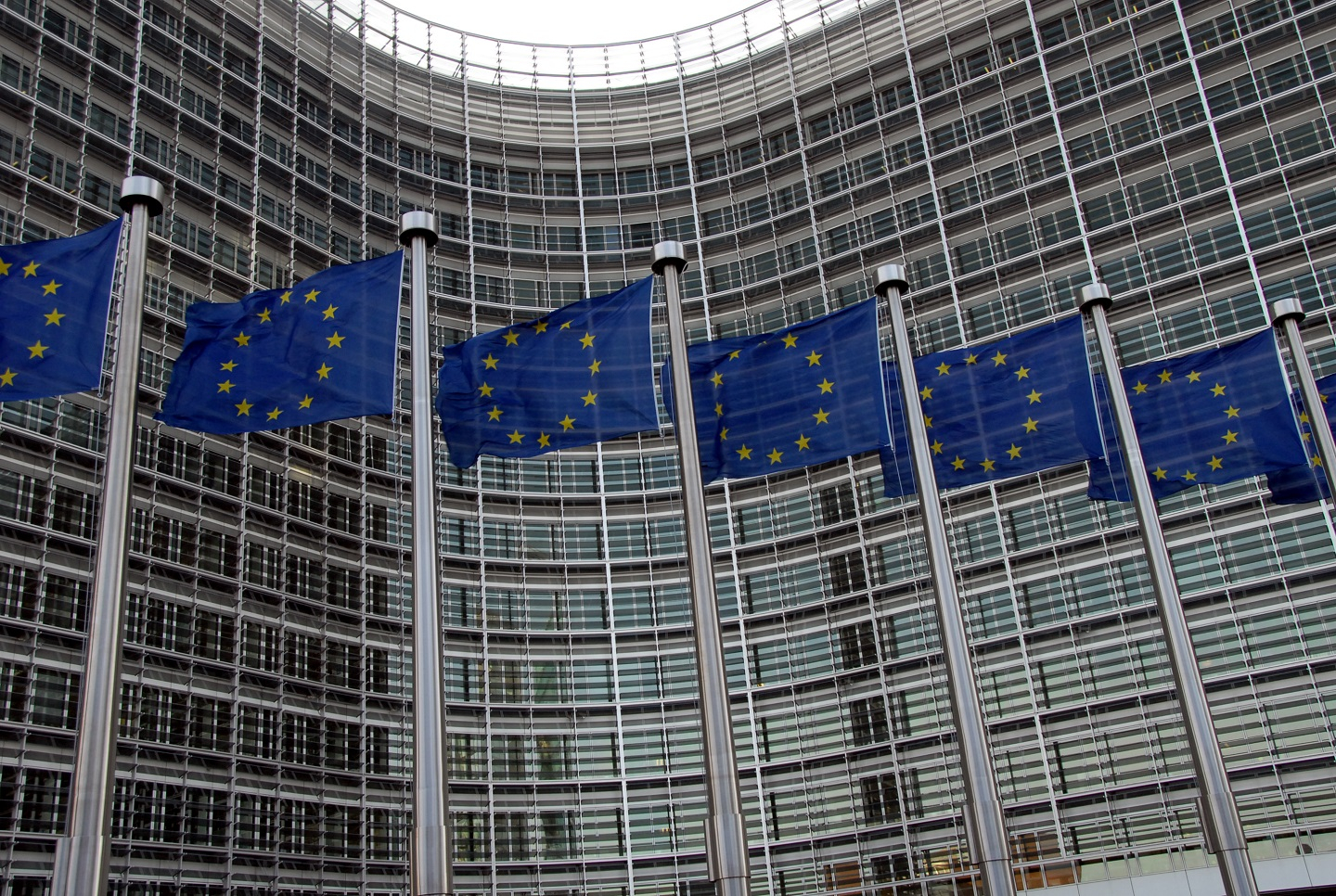
Likewise, coordination of counterintelligence activity—and pressing member states with particular vulnerabilities to address this gap—is still neglected. The EU has no more than a strictly limited counterintelligence capacity. Indeed, when outgoing European Commission president Jean-Claude Juncker floated the notion of a fully-fledged counterintelligence service in 2015, its initial purpose would have been to protect the European Commission from member states’ services, not from outside players (such as the Russians).15 The idea came to nothing, but it speaks to a set of priorities that do not seriously or adequately address the question of Russian intelligence activity. Brussels is an infamous hotbed of Russian (and others’) espionage, and Belgium spends one of Europe’s lowest proportions of gross domestic product on its intelligence and security agencies, illustrating the nature of the threat even on the EU’s home turf.16 The wider question of the mismatch among EU member states’ counterintelligence activities, and thus Russia’s ability to profit from these disparities and use them to penetrate the intelligence-sharing and other cooperation elements of the continental alliance, is another question the EU would rather not address, not least because it touches directly on prickly issues of national sovereignty.
Ironically, the prickliest of issues is likely one of legitimacy. The reason Russian political interference and disinformation has been able to find traction in Europe is not because the Kremlin has acquired any supernatural powers of mental control. Rather, it is because Moscow is able to exploit a generalized legitimacy crisis gripping the West, using a wide variety of issues—from concern about migration to resistance to the EU—to reach an audience willing to invoke propaganda TV channel RT’s slogan, “Question more.” Trust in the EU remains below 50 percent, and trust in member states overall is even lower.17
EU institutions have proven willing but clumsy in their efforts to address their legitimacy gap, largely appearing to feel that upbeat briefings will do the job. More crucial has been the question of legitimacy gaps within member states, from the secessionist impulses of Catalans and Scots to the rising concerns that have powered the populist resurgences and insurgencies of the left and right. These issues are clearly of extreme political sensitivity, and except in some especially egregious cases (such as prospective Article 7 rebukes of Poland and Hungary18), the European Commission largely avoids taking prescriptive or punitive approaches to such cases. This approach is understandable, especially when the European Commission has been accused of overreach, but it leaves open many options for Russian active measures.
A Clash of Codes and Cultures
One of the key problems with the EU-Russian relationship, which also helps explain the deep and evident mutual misunderstandings between the two and is a factor in the limitations of EU responses to Russian political war, is the extent to which there are fundamental differences in their respective strategic cultures and operational codes. Although French President Emmanuel Macron may lament that “what Europe is missing today is a common strategic culture,” one could suggest that this position means that the continent is not in step with his vision of its future.19 However, the EU as an institution does appear to have a clear strategic culture, anchored in its traditional normative role but with an increasing willingness to use force in the context of integrated civil-military strategies.20 What the EU does and does not do with relation to Russia, and where it does and does not adequately meet the challenge, is not so much a question of the need for consensus or of bureaucratic inertia (though both are factors) but a conceptual, even philosophical, disconnect between how the two powers see geopolitics and security.
Wartime Footing Versus Peacetime Diplomacy
The EU starting point on international affairs is, in Mogherini’s words, to see “cooperation as key, multilateralism as essential, and win-win solutions where others see a zero-sum game.”21 This view contrasts starkly with the Kremlin’s belief that it faces a constant, politically existential threat, not least because it means that, in effect, Russia is on constant wartime footing. Any means, tactics, and instruments are at the state’s disposal, and any Russian individual or organization may be called on to combat this threat. As a former Russian diplomat put it, “We engage in foreign policy the way we engage in war, with every means, every weapon, every drop of blood.”22 For example, criminality and corruption are, to the EU, domestic challenges to be addressed with cooperation. Moscow sees them as challenges, too, but they are also—and this is a duality that European officials often find hard to understand—potential instruments of statecraft.
This Russian approach necessarily also means that decision-making is much more directly located in institutions such as the Presidential Administration and even the Defence Ministry, rather than the Ministry of Foreign Affairs (MID). This dispersal of initiative helps explain some of the intellectual disconnect, as the EEAS finds itself frustrated that MID appears either unable or unwilling to present a definitive picture of Russian policy. European officials thus often find themselves taking at face value statements that are either outright falsehoods or simply their interlocutors’ guesses about their own policy.23
Subversion Versus Influence
A central tenet of EU policy, and its image of its role in the world, is as a soft-power bloc, able to spread its values and thus its influence through example, engagement, and encouragement.24 The EU believes, therefore, that it is both appropriate and necessary for it, for example, to speak out on Russia’s human rights record and “political and financial support … in particular, for civil society activists, human rights defenders, bloggers, independent media, investigative journalists, outspoken academics and public figures, and NGOs [nongovernmental organizations].”25
The problem is that the Kremlin, believing it faces constant efforts to undermine it at home and abroad through subversion and covert influence, necessarily will consider this position nothing less than Western active measures.26 In his now-infamous 2013 article in Voenno-promyshlenniy kur’er, Russian Chief of the General Staff Valery Gerasimov describes this position as one that activates “the protest potential of the population” as part of Western “nonmilitary means of achieving political and strategic goals.”27
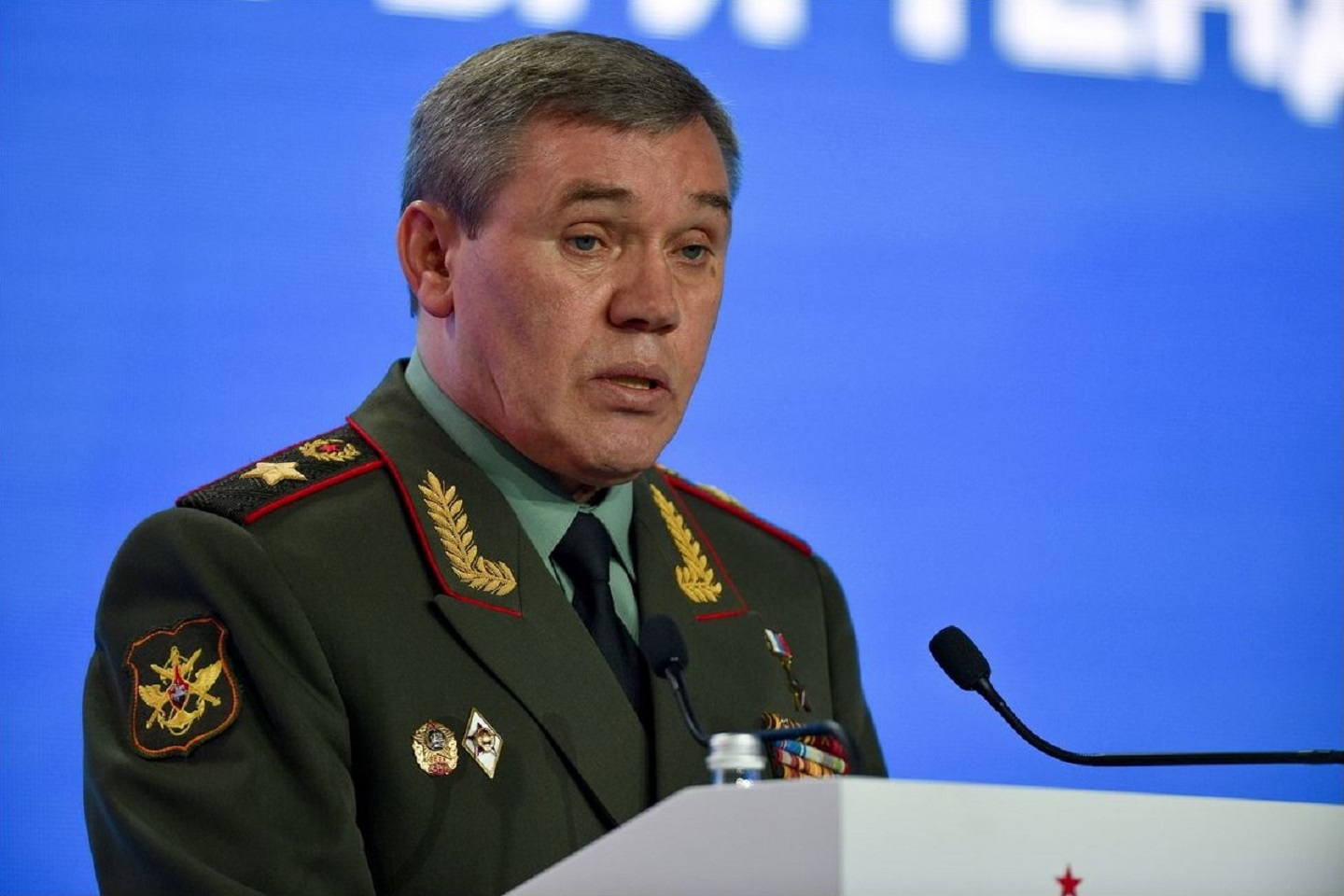
Russian strategic culture holds that offense is the best defense: In addition to seeking to foil a rival’s attempts to constrain and penetrate, Moscow believes it ought also to respond by launching actively aggressive campaigns to degrade the other’s capabilities and deter further intrusion. Thus, not only does Vladimir Putin’s Russia conduct covert activities as a matter of course, it also assumes that other powers will operate on the same basis, and it believes that the EU’s desire to be a normative power means it is also a subversive one.
It is not that either Moscow or Brussels is “wrong.” Rather, they live in different ideational universes. The EU is in some ways unwilling and in other ways unable to come to terms with a Russia that genuinely regards the EU as normatively aggressive and believes it must respond in kind. This Kremlin is equally bound by its own strategic culture and operational code and considers it both necessary and inevitable that it prosecutes its political war against the EU.
For Academic Citation
Mark Garleotti, “Living in Different Worlds: The European Union and Russian Political War,” Marshall Center Security Insight, no. 39, September 2019,
https://www.marshallcenter.org/en/publications/security-insights/living-different-worlds-european-union-and-russian-political-war-0.
Notes
1 See Mark Galeotti, “Active Measures: Russia’s Covert Geopolitical Operations,” Security Insights No. 31, George C. Marshall European Center for Security Studies, June 2019; Mark Galeotti, “Controlling Chaos: How Russia Manages Its Political War in Europe,” European Council on Foreign Relations, August 2017, https://www.ecfr.eu/page/-/ECFR228_-_CONTROLLING_CHAOS1.pdf; and “Russian Political War: Moving Beyond the Hybrid,” Royal United Services Institute event, February 20, 2019, https://rusi.org/event/russian-political-war-moving-beyond-hybrid.
2 Conversation with the author, London, March 2019.
3 Alexandra Brzozowski, “Russia Can’t Be Considered Strategic Partner of EU Anymore, MEPs Say,” Euractiv, March 13, 2019, https://www.euractiv.com/section/global-europe/news/russia-cant-be-considered-strategic-partner-of-eu-anymore-meps-say.
4 European Parliament, “The EU's Russia Policy: Five Guiding Principles,” briefing, October 2016, http://www.europarl.europa.eu/RegData/etudes/BRIE/2016/589857/EPRS_BRI(2016)589857_EN.pdf.
5 These divisions are especially well illustrated in Kadri Liik, “Winning the Normative War with Russia: An EU-Russia Power Audit,” European Council on Foreign Relations, May 21, 2018, https://www.ecfr.eu/publications/summary/winning_the_normative_war_with_russia_an_eu_russia_power_audit.
6 Gustav Gressel, “Protecting Europe Against Hybrid Threats,” European Council on Foreign Relations, June 25, 2019, https://www.ecfr.eu/publications/summary/protecting_europe_against_hybrid_threats.
7 Georgi Gotev, “EU to Label Russia a ‘Strategic Challenge,’” Euractiv, May 31, 2016, https://www.euractiv.com/section/global-europe/news/eu-to-label-russia-a-strategic-challenge; European Union, Shared Vision, Common Action: A Stronger Europe: A Global Strategy for the European Union's Foreign and Security Policy (Brussels, 2016), https://eeas.europa.eu/topics/eu-global-strategy/17304/global-strategy-european-unions-foreign-and-security-policy_en.
8 European Council, “Timeline—EU Restrictive Measures in Response to the Crisis in Ukraine,” webpage, last reviewed June 28, 2019, https://www.consilium.europa.eu/en/policies/sanctions/ukraine-crisis/history-ukraine-crisis.
9 EU countries that did not join this initiative included Austria, Cyprus, Greece, Hungary, Slovakia, and Slovenia.
10 European Union, “Statement by the Foreign Affairs Council on the Salisbury Attack,” March 19, 2018, https://www.consilium.europa.eu/en/press/press-releases/2018/03/19/statement-by-the-foreign-affairs-council-on-the-salisbury-attack.
11 Conversation with the author, Riga, January 2019.
12 See the Disinformation Review website at https://euvsdisinfo.eu.
13 On this issue, see Mark Galeotti, “Crimintern: How the Kremlin Uses Russia’s Criminal Networks in Europe,” European Council on Foreign Relations, April 18 2017, https://www.ecfr.eu/publications/summary/crimintern_how_the_kremlin_uses_russias_criminal_networks_in_europe.
14 Conversation with the author, London, May 2019.
15 Bruno Waterfield, “Juncker Demands Secret Service for Europe,” Times (London), May 1, 2015, https://www.thetimes.co.uk/article/juncker-demands-secret-service-for-europe-tl883hn0rms.
16 See Mark Galeotti, “Trump Was Right: NATO Is Obsolete,” Foreign Policy, July 20, 2017, https://foreignpolicy.com/2017/07/20/trump-nato-hybrid-warfare-hybrid-defense-russia-putin.
17 Leonid Bershidsky, “The EU More Popular? Don't Kid Yourself,” Bloomberg, August 6, 2019, https://www.bloomberg.com/opinion/articles/2019-08-06/eurobarometer-european-union-more-popular-don-t-kid-yourself.
18 See “How the EU Is Fighting to Protect the Rule of Law in Poland,” Economist, June 3, 2018, https://www.economist.com/the-economist-explains/2018/07/03/how-the-eu-is-fighting-to-protect-the-rule-of-law-in-poland; European Parliament, “Rule of Law in Hungary: Parliament Calls on the EU to Act,” press release, September 12, 2018, https://www.europarl.europa.eu/news/en/press-room/20180906IPR12104/rule-of-law-in-hungary-parliament-calls-on-the-eu-to-act; and Thomas Wahl, “No Progress in Art. 7 TEU Procedure Against Poland and Hungary,” eucrim, April 8, 2019, https://eucrim.eu/news/no-progress-art-7-teu-procedure-against-poland-and-hungary.
19 Nicholas Vinocur, “Macron Calls for New EU ‘Strategic Culture,’” Politico, September 26, 2017, https://www.politico.eu/article/eu-international-diplomacy-army-macron-calls-for-strategic-culture.
20 For the best summaries of the EU’s strategic culture, see Alessia Biava, Margriet Drent, and Graeme P. Herd, “Characterizing the European Union’s Strategic Culture: An Analytical Framework,” Journal of Common Market Studies 49, no. 6 (November 2011); Janne Haaland Matlary, “When Soft Power Turns Hard: Is an EU Strategic Culture Possible?” Security Dialogue 37, no. 1 (March 2006); and Paul Cornish and Geoffrey Edwards, “The Strategic Culture of the European Union: A Progress Report,” International Affairs 81, no. 4 (July 2005).
21 “EU an Avid Supporter of Rules-Based Global System,” Business Times, August 2, 2018, https://www.businesstimes.com.sg/opinion/eu-an-avid-supporter-of-rules-based-global-system.
22 Conversation with the author, Moscow, April 2017. For more on Russian efforts to destabilize Europe, see Mark Galeotti, “Controlling Chaos: How Russia Manages Its Political War in Europe,” European Council on Foreign Relations, August 2017, https://www.ecfr.eu/page/-/ECFR228_-_CONTROLLING_CHAOS1.pdf.
23 This is a point that has been made to me by both EEAS and MID officials, each expressing exasperation with the other.
24 See Michelle Pace, “The Construction of EU Normative Power,” Journal of Common Market Studies 45, no. 5 (December 2007); Neve Gordon and Sharon Pardo, “Normative Power Europe and the Power of the Local,” Journal of Common Market Studies 53, no. 2 (March 2015); and Nathalie Tocci, “The Making of the EU Global Strategy,” Contemporary Security Policy 37, no. 3 (2016).
25 European Parliament Committee on Foreign Affairs, Report on the State of EU-Russia Political Relations, 2018/2158(INI), February 8, 2019, https://www.europarl.europa.eu/doceo/document/A-8-2019-0073_EN.html.
26 See Mark Galeotti, “Active Measures: Russia’s Covert Geopolitical Operations,” Security Insights No. 31, George C. Marshall European Center for Security Studies, June 2019.
27 Valery Gerasimov, “Tsennost’ nauki v predvidenii,” Voenno-promyshlenniy kur’er, February 26, 2013, https://www.vpk-news.ru/articles/14632.
About the Author
Mark Galeotti is a Senior Associate Fellow at RUSI, an Honorary Professor at UCL SSEES and the director of the Mayak Intelligence consultancy. His areas of interest are Russian politics and security affairs, with a particular focus on crime, policing, and the intelligence and security community.
Russia Strategic Initiative (RSI)
This program of research, led by the GCMC and funded by RSI (U.S. Department of Defense effort to enhance understanding of the Russian way of war in order to inform strategy and planning), employs in-depth case studies to better understand Russian strategic behavior in order to mitigate miscalculation in relations.
The Marshall Center Security Insights
The George C. Marshall European Center for Security Studies in Garmisch-Partenkirchen, Germany, a German-American partnership, is committed to creating and enhancing worldwide networks to address global and regional security challenges. The Marshall Center offers fifteen resident programs designed to promote peaceful, whole of government approaches to address today’s most pressing security challenges. Since its creation in 1992, the Marshall Center’s alumni network has grown to include over 13,985 professionals from 157 countries. More information on the Marshall Center can be found online at www.marshallcenter.org.
The articles in the Security Insights series reflect the views of the authors and are not necessarily the official policy of the United States, Germany, or any other governments.
